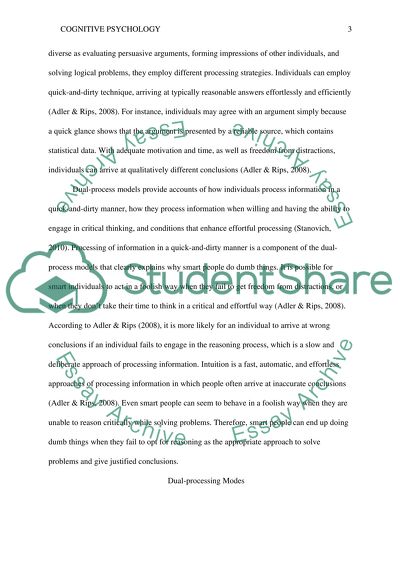Cognitive Psychology Essay Example | Topics and Well Written Essays - 500 words. Retrieved from https://studentshare.org/psychology/1436040-cognitive-psychology
Cognitive Psychology Essay Example | Topics and Well Written Essays - 500 Words. https://studentshare.org/psychology/1436040-cognitive-psychology.


